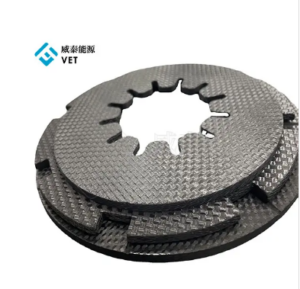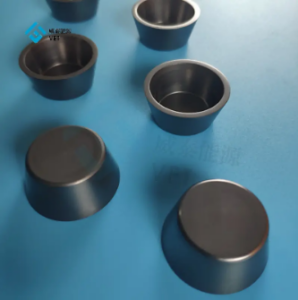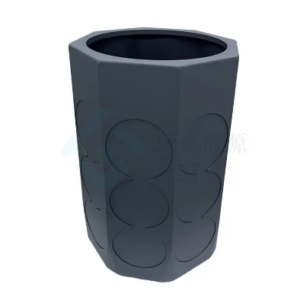Silicon nitride ceramic stands out due to its remarkable properties. It offers exceptional hardness and strength, making it ideal for applications requiring durability. Its thermal stability allows it to maintain performance even at high temperatures, while its resistance to wear and corrosion ensures longevity in harsh environments. However, silicon nitride does have some limitations. Its brittleness poses a risk of fracture under impact, and its heat transfer capabilities are limited, which can affect thermal management in certain applications. Despite these drawbacks, silicon nitride ceramic balls are widely used in industries where strength and resilience are paramount.

Key Takeaways
- Silicon nitride ceramic is renowned for its exceptional hardness and strength, making it ideal for demanding applications in industries like automotive and manufacturing.
- Its high-temperature resistance and low thermal expansion ensure reliability in extreme conditions, enhancing performance in engine components and cutting tools.
- The material’s resistance to wear and corrosion contributes to its longevity, reducing maintenance needs and replacement costs in harsh environments.
- Despite its advantages, silicon nitride ceramic is brittle, posing a risk of fracture under impact, which requires careful handling and design considerations.
- Limited thermal conductivity can affect heat management in applications, necessitating innovative solutions to ensure effective thermal performance.
- High production costs can be a barrier to widespread adoption, prompting industries to weigh the benefits against economic feasibility.
- Silicon nitride ceramics play a crucial role in advancing sustainable technologies, as their durability reduces waste and supports the transition to renewable energy solutions.
Advantages of Silicon Nitride Ceramics
Exceptional Hardness and Strength
Silicon nitride ceramic exhibits remarkable hardness and strength, making it a preferred choice in industries that demand durability. Its robust nature allows it to withstand significant wear and tear, which is crucial in applications involving high friction or mechanical stress.
Resistance to Wear and Tear
Industries such as automotive and manufacturing benefit from silicon nitride ceramic’s resistance to wear and tear. This material maintains its integrity even under continuous use, reducing the need for frequent replacements. For instance, in the biomedical field, silicon nitride ceramics are recognized for their durability, ensuring longevity in medical devices and implants.
High Load-Bearing Capacity
The high load-bearing capacity of silicon nitride ceramic makes it suitable for applications requiring substantial mechanical support. It can endure heavy loads without deforming, which is essential in machinery components and structural applications. This property ensures reliability and efficiency in demanding environments.
Thermal Stability and Insulation
Silicon nitride ceramic offers excellent thermal stability and insulation properties. It performs well under extreme temperatures, maintaining its structural integrity and insulating capabilities.
High-Temperature Resistance
This ceramic material can withstand high temperatures without losing its mechanical properties. Its high-temperature resistance makes it ideal for use in engine components and other high-heat environments. This characteristic ensures that silicon nitride ceramic remains effective in applications where other materials might fail.
Low Thermal Expansion
Silicon nitride ceramic exhibits low thermal expansion, which helps maintain dimensional stability across varying temperatures. This property is particularly beneficial in precision applications where maintaining exact dimensions is critical. It ensures that components remain stable and reliable, even when subjected to rapid temperature changes.
Chemical and Corrosion Resistance
Silicon nitride ceramic is highly resistant to chemical reactions and corrosion, making it suitable for use in harsh environments.
Resistance to Chemical Reactions
The material’s resistance to chemical reactions ensures that it remains unaffected by exposure to various chemicals. This property is advantageous in industries such as metallurgy and semiconductor manufacturing, where exposure to corrosive substances is common.
Longevity in Harsh Environments
Silicon nitride ceramic’s ability to withstand harsh environments contributes to its longevity. It maintains its performance and structural integrity even in challenging conditions, ensuring long-term reliability. This durability makes it a valuable material in applications where other materials might degrade over time.
Electrical Insulation Properties
Silicon nitride ceramic exhibits outstanding electrical insulation properties, making it a valuable material in various electrical applications. Its non-conductive nature ensures that it effectively prevents the flow of electric current, which is crucial in maintaining the safety and efficiency of electrical systems.
Non-Conductive Nature
The non-conductive nature of silicon nitride ceramic arises from its unique atomic structure, which lacks free electrons necessary for electrical conduction. This property makes it an ideal choice for insulating components in electrical devices. By preventing electrical currents from passing through, silicon nitride ceramic helps to avoid short circuits and electrical failures. This characteristic is particularly beneficial in high-voltage environments where insulation is paramount for safety and performance.
Applications in Electrical Components
Silicon nitride ceramic finds extensive use in various electrical components due to its superior insulation capabilities. It serves as an essential material in the manufacturing of insulators, circuit breakers, and other critical components that require reliable electrical insulation. In the semiconductor industry, silicon nitride ceramic plays a vital role in protecting sensitive electronic parts from electrical interference. Its durability and resistance to wear further enhance its suitability for long-term applications in demanding electrical environments.
Scientific Research Findings:
- Silicon Nitride Ceramics in Biomedical Field: Recognized for their durability and resistance to wear, these ceramics also exhibit biocompatibility, making them suitable for medical settings. This durability translates well into electrical applications, where longevity and reliability are crucial.
Disadvantages of Silicon Nitride Ceramics
Brittleness and Fracture Risk
Silicon nitride ceramic, despite its many advantages, exhibits brittleness. This characteristic poses a significant risk of fracture, especially under impact. Industries that utilize this material must consider its susceptibility to damage when subjected to sudden forces.
Susceptibility to Impact Damage
Silicon nitride ceramic can suffer from impact damage due to its brittle nature. When exposed to sudden or forceful impacts, the material may crack or shatter. This limitation necessitates careful handling and design considerations in applications where impact resistance is crucial. For example, in the automotive industry, engineers must account for potential impact scenarios to ensure the reliability of components made from silicon nitride ceramic.
Limitations in Flexibility
The inherent brittleness of silicon nitride ceramic also limits its flexibility. Unlike metals, which can bend or deform under stress, silicon nitride ceramic lacks this adaptability. This rigidity restricts its use in applications requiring materials that can absorb and dissipate energy through deformation. Consequently, designers must evaluate the trade-offs between the material’s strength and its lack of flexibility.
Heat Transfer Limitations
Silicon nitride ceramic faces challenges in heat transfer, which can impact its effectiveness in thermal management applications. While it excels in thermal stability, its ability to conduct heat remains limited.
Challenges in Thermal Conductivity
The thermal conductivity of silicon nitride ceramic is lower compared to metals. This characteristic can hinder its performance in applications where efficient heat dissipation is essential. For instance, in electronic devices, inadequate heat transfer can lead to overheating, affecting the device’s longevity and performance. Engineers must address these challenges by incorporating additional cooling mechanisms or selecting alternative materials for heat-sensitive components.
Implications for Heat Management
The limitations in thermal conductivity have implications for heat management strategies. Industries relying on silicon nitride ceramic must implement innovative solutions to manage heat effectively. This may involve using supplementary materials or designing systems that compensate for the ceramic’s heat transfer limitations. By understanding these constraints, engineers can optimize the use of silicon nitride ceramic in applications where thermal management is critical.
Cost Considerations
The production and economic viability of silicon nitride ceramic present challenges that industries must navigate. The costs associated with manufacturing and mass production can influence its adoption.
High Production Costs
Producing silicon nitride ceramic involves complex processes and specialized equipment, leading to high production costs. These expenses can deter some industries from adopting the material, especially when budget constraints are a concern. Companies must weigh the benefits of silicon nitride ceramic against its production costs to determine its feasibility for specific applications.
Economic Viability in Mass Production
The economic viability of silicon nitride ceramic in mass production remains a critical consideration. While the material offers numerous advantages, its cost-effectiveness in large-scale manufacturing can be a limiting factor. Industries must assess whether the benefits of using silicon nitride ceramic justify the investment required for mass production. In some cases, alternative materials may offer a more economical solution without compromising performance.
Applications of Silicon Nitride Ceramics
Silicon nitride ceramic has found its place in various industries due to its exceptional properties. Its unique combination of strength, thermal stability, and resistance to wear and corrosion makes it a valuable material in demanding applications.
Automotive Industry
Use in Engine Components
In the automotive industry, silicon nitride ceramic plays a crucial role in engine components. Its high-temperature resistance and low thermal expansion make it ideal for parts exposed to extreme conditions. For example, turbocharger rotors and exhaust gas control valves benefit from silicon nitride’s ability to withstand high temperatures without losing structural integrity. This material ensures that engine components maintain their performance and reliability over time.
Benefits in Fuel Efficiency
Silicon nitride ceramic contributes to improved fuel efficiency in vehicles. Its lightweight nature reduces the overall weight of engine components, leading to better fuel economy. Additionally, its thermal insulation properties help maintain optimal engine temperatures, enhancing combustion efficiency. By integrating silicon nitride ceramic into engine designs, manufacturers can achieve significant gains in fuel efficiency, aligning with the industry’s push towards more sustainable and eco-friendly vehicles.
Engineering and Manufacturing
Role in Cutting Tools
In engineering and manufacturing, silicon nitride ceramic is widely used in cutting tools. Its exceptional hardness and wear resistance make it suitable for machining hard materials. Cutting tools made from silicon nitride ceramic maintain their sharpness and precision even after prolonged use, reducing downtime and increasing productivity. This material’s ability to withstand high temperatures also allows for faster cutting speeds, further enhancing manufacturing efficiency.
Advantages in Machinery Components
Machinery components benefit from the high load-bearing capacity and durability of silicon nitride ceramic. Bearings, seals, and other critical parts made from this material exhibit long-lasting performance, even in harsh environments. Silicon nitride’s resistance to wear and corrosion ensures that machinery operates smoothly and reliably, minimizing maintenance requirements and extending the lifespan of equipment.
Electronics and Electrical Applications
Use in Semiconductor Manufacturing
Silicon nitride ceramic plays a vital role in semiconductor manufacturing. Its chemical inertness and thermal stability make it an ideal material for wafer processing equipment. Components such as wafer carriers and etching chambers benefit from silicon nitride’s ability to withstand corrosive chemicals and high temperatures. This ensures the purity and quality of semiconductor products, meeting the stringent demands of the electronics industry.
Benefits in Insulating Components
In electrical applications, silicon nitride ceramic serves as an excellent insulating material. Its non-conductive nature prevents electrical currents from passing through, making it suitable for insulators and circuit breakers. The material’s durability and resistance to wear further enhance its suitability for long-term applications in demanding electrical environments. By using silicon nitride ceramic, manufacturers can ensure the safety and efficiency of electrical systems, reducing the risk of short circuits and electrical failures.
Ningbo VET Energy Technology Co.Ltd Applications
Innovative Uses in Energy Solutions
Ningbo VET Energy Technology Co. harnesses the unique properties of silicon nitride ceramics to develop cutting-edge energy solutions. The company leverages the material’s exceptional thermal stability and low thermal expansion to create components that perform reliably under extreme conditions. These properties make silicon nitride an ideal choice for applications in renewable energy systems, where efficiency and durability are paramount.
Key Advantages:
- Thermal Stability: Silicon nitride maintains its structural integrity at high temperatures, making it suitable for solar power systems and other high-temperature applications.
- Low Thermal Expansion: This characteristic ensures dimensional stability, crucial for precision components in energy systems.
Ningbo VET Energy Technology Co.Ltd integrates silicon nitride ceramics into various energy solutions, enhancing performance and longevity. For instance, in photovoltaic systems, silicon nitride components help improve energy conversion efficiency by maintaining optimal operating conditions. The company’s innovative approach ensures that their products meet the rigorous demands of modern energy applications.
Contributions to Sustainable Technologies
Ningbo VET Energy Technology Co. plays a pivotal role in advancing sustainable technologies through the use of silicon nitride ceramics. The material’s resistance to wear and corrosion extends the lifespan of components, reducing the need for frequent replacements and minimizing waste. This aligns with the company’s commitment to sustainability and environmental responsibility.
Sustainability Benefits:
- Durability: Silicon nitride’s wear resistance ensures long-lasting performance, reducing resource consumption.
- Corrosion Resistance: The material withstands harsh environments, making it ideal for sustainable energy applications.
By incorporating silicon nitride ceramics into their products, Ningbo VET Energy Technology Co. contributes to the development of eco-friendly technologies. Their efforts support the transition to renewable energy sources, promoting a cleaner and more sustainable future. The company’s dedication to innovation and sustainability positions them as a leader in the field of advanced materials and energy solutions.
Silicon nitride ceramic offers a compelling mix of advantages and disadvantages. Its exceptional mechanical strength, thermal stability, and electrical insulation make it invaluable across industries like automotive, aerospace, and electronics. However, its brittleness and high production costs present challenges. Industries must weigh these factors to make informed decisions. Despite its limitations, silicon nitride ceramic holds significant potential for innovation and efficiency in various applications, from engine components to cutting tools. Its unique properties continue to drive advancements in technology and sustainable solutions.
FAQ
What are the primary advantages of silicon nitride ceramics?
Silicon nitride ceramics offer several key benefits. They exhibit exceptional hardness and strength, making them ideal for applications requiring durability. Their thermal stability allows them to perform well at high temperatures, while their resistance to wear and corrosion ensures longevity in harsh environments. These properties make silicon nitride ceramics a preferred choice in industries such as automotive and aerospace.
How does silicon nitride ceramic compare to other materials in terms of thermal stability?
Silicon nitride ceramic excels in thermal stability compared to many other materials. It maintains its structural integrity and insulating capabilities even under extreme temperatures. This makes it suitable for high-temperature applications, such as engine components and industrial machinery, where other materials might fail.
What are the limitations of using silicon nitride ceramics?
Despite their many advantages, silicon nitride ceramics have some limitations. They are brittle, which poses a risk of fracture under impact. Additionally, their heat transfer capabilities are limited, which can affect thermal management in certain applications. Industries must consider these factors when deciding to use silicon nitride ceramics.
In which industries are silicon nitride ceramics most commonly used?
Silicon nitride ceramics find applications in various industries due to their unique properties. They are widely used in the automotive industry for engine components, in engineering and manufacturing for cutting tools, and in electronics for semiconductor manufacturing. Their resistance to wear and corrosion also makes them valuable in harsh environments.
How does Ningbo VET Energy Technology Co. utilize silicon nitride ceramics?
Ningbo VET Energy Technology Co. leverages the properties of silicon nitride ceramics to develop innovative energy solutions. The company uses these ceramics in renewable energy systems, enhancing performance and longevity. Their products benefit from silicon nitride’s thermal stability and low thermal expansion, making them suitable for high-temperature applications.
What makes silicon nitride ceramics suitable for electrical applications?
Silicon nitride ceramics possess outstanding electrical insulation properties. Their non-conductive nature prevents the flow of electric current, making them ideal for insulating components in electrical devices. This characteristic is crucial for maintaining safety and efficiency in electrical systems, particularly in high-voltage environments.
Are there cost considerations when using silicon nitride ceramics?
Yes, the production of silicon nitride ceramics involves complex processes and specialized equipment, leading to high production costs. Industries must weigh the benefits of using these ceramics against their production costs to determine their feasibility for specific applications. In some cases, alternative materials may offer a more economical solution.
How do silicon nitride ceramics contribute to sustainability?
Silicon nitride ceramics contribute to sustainability through their durability and resistance to wear and corrosion. These properties extend the lifespan of components, reducing the need for frequent replacements and minimizing waste. Companies like Ningbo VET Energy Technology Co. incorporate these ceramics into eco-friendly technologies, supporting the transition to renewable energy sources.
What role do silicon nitride ceramics play in semiconductor manufacturing?
In semiconductor manufacturing, silicon nitride ceramics serve as essential materials for wafer processing equipment. Their chemical inertness and thermal stability make them ideal for components exposed to corrosive chemicals and high temperatures. This ensures the purity and quality of semiconductor products, meeting the stringent demands of the electronics industry.
Can silicon nitride ceramics improve fuel efficiency in vehicles?
Yes, silicon nitride ceramics can enhance fuel efficiency in vehicles. Their lightweight nature reduces the overall weight of engine components, leading to better fuel economy. Additionally, their thermal insulation properties help maintain optimal engine temperatures, improving combustion efficiency and aligning with the industry’s push towards more sustainable vehicles.







